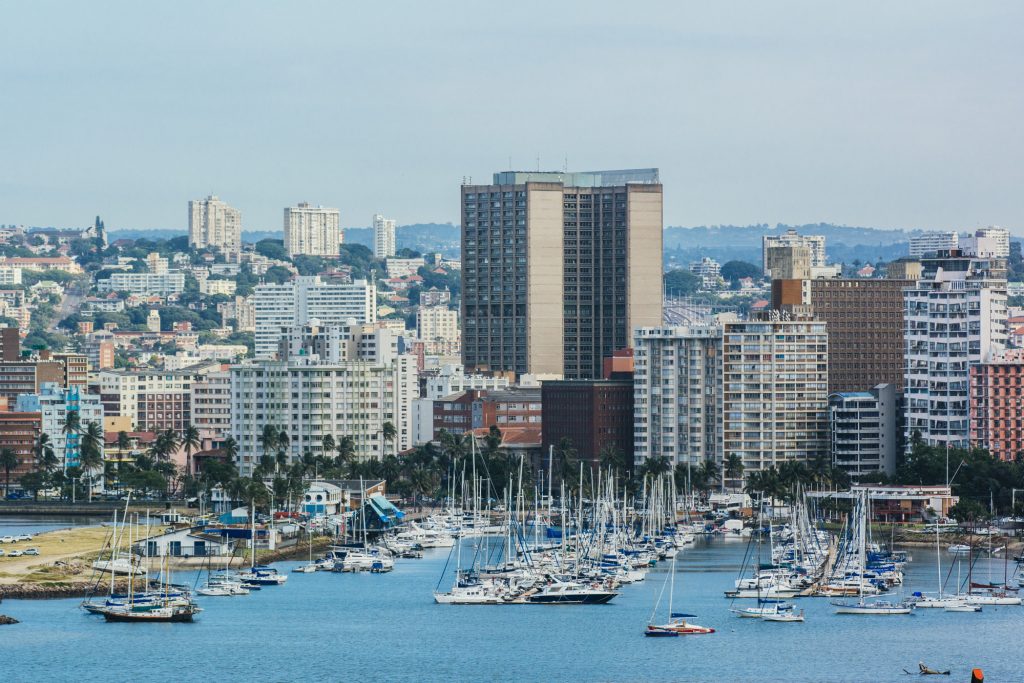Eskom’s implementation of a new load shedding schedule to increase eThewkini Municipality’s rolling blackouts will worsen economic losses for businesses that are still recovering from Covid-19, the July 2021 riots and the April 2022 floods that devastated the region.
This was the concern raised by Durban Chamber of Commerce and Industry CEO Palesa Phili on Wednesday, following eThekwini Municipality’s announcement that Durban would now have load shedding from Stage 1 to 3 as well as higher stages, joining the rest of the country with longer hours of rolling blackouts.
Read: Measures in place to avoid a grid collapse – Eskom
The city was previously exempted from stages 1 to 3 of load shedding because the local grid remains fragile to faults and outages after the deadly floods that claimed at least 435 lives and destroyed swathes of infrastructure.
eThekwini Municipality said on Tuesday that the city’s new load shedding schedule would be implemented from 25 May and that industrial blocks 17 to 20 would only be affected from Stage 7 for four hours at a time.
Palesa said the eThekwini municipality team lead by Mayor Mxolisi Kaunda and the business community had led a “tough process” to advocate to Eskom for businesses to be exempt from stages 1 to 3 of load shedding.
However, following the announcement she said organised business was now “deeply concerned” about the return to normal load shedding stages for most businesses.
Loss of productivity
“Load shedding severely impacts the economy across crucial economic sectors resulting in loss of productivity, which inevitably leads to revenue losses and unplanned operational expenditure across industries and their value chains,” Phili said.
“The exemption from load shedding of eThekwini businesses, was following the July 2021 unrest, April/May floods which saw many businesses destroyed and in need of assistance, and now we are hit with this news, while to date we still have not yet received a clear infrastructure repair rollout plan with timelines from eThekwini,” she said.
She said the city’s infrastructure is in a “critical state” and businesses will be severely impacted by the implementation of the new schedule.
“We are aware that there will be an exception made for industries block 17 – 20, [that] will only be affected from stage 7, however this is not enough nor is it a solution,” Phili said.
“As organised business, we are at a critical state in the city of eThekwini, and we believe the implementation of a new load shedding schedule will worsen economic losses,” she added.
Business plan of action
Phili called for Kaunda and his heads of departments to consider the following proposed interventions:
- Consult with the city on the rationale of how the schedule decisions are made and give the private sector an opportunity to contribute to the proposed schedule.
- Reconsider the decision. Durban is still recovering from the recent catastrophic events, Covid-19 Pandemic, 2021 July unrest and April/May 2022 floods.
- Make adequate provision for the South Durban Basin. The City’s electricity infrastructure in the South Durban Basin experienced severe damage because of the floods. The highly vulnerable state of the electricity network in the South Durban Basin is a cause for concern for our members.
Ethekwini Municipality said in its announcement that the city’s infrastructure is not yet repaired to pre-flood levels but it acknowledged the country’s need to reduce the load to protect the national grid.
“It has therefore become unavoidable for eThekwini to revert to normal load shedding stages as experienced by the rest of the country. Some areas continue to battle with the damage from the floods and as a result, there are certain substations that cannot be switched off as that would pose a significant risk to residents and infrastructure,” the municipality said.
“The City is finalising the amended load shedding schedule and this will be shared with the public as soon as it is ready. Suburban block allocations have been amended to accommodate required changes. Customers are urged to check their suburbs against their new block numbers when the schedule is published.”
Read:
Jurisdiction to hear excessive electricity pricing complaint decided
Metros in a race to get Eskom off their backs
eThekwini has R324bn plan to end load shedding
Private sector must lead energy transition
Phili said the chamber believed more needs to be done to move towards energy security in the country and in the city.
“Energy generation should be led by the private sector to rapidly expand the generation capacity in the country and in eThekwini. In addition, there are numerous technology options which could negate the need for load shedding, which are not being explored,” she said.
She urged the city to consider discuss the proposed interventions with provincial and national government.
“If we continue this direction, we are headed for more catastrophic business collapse which we are not sure if we will recover from,” Phili added.
Read: Further delays at Koeberg spell more trouble for Eskom

